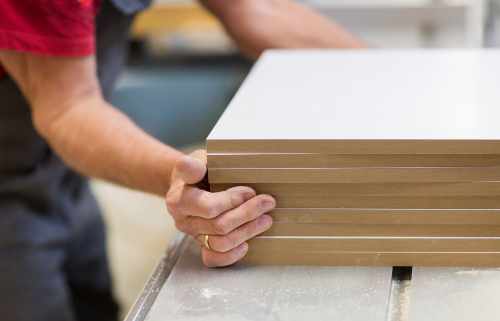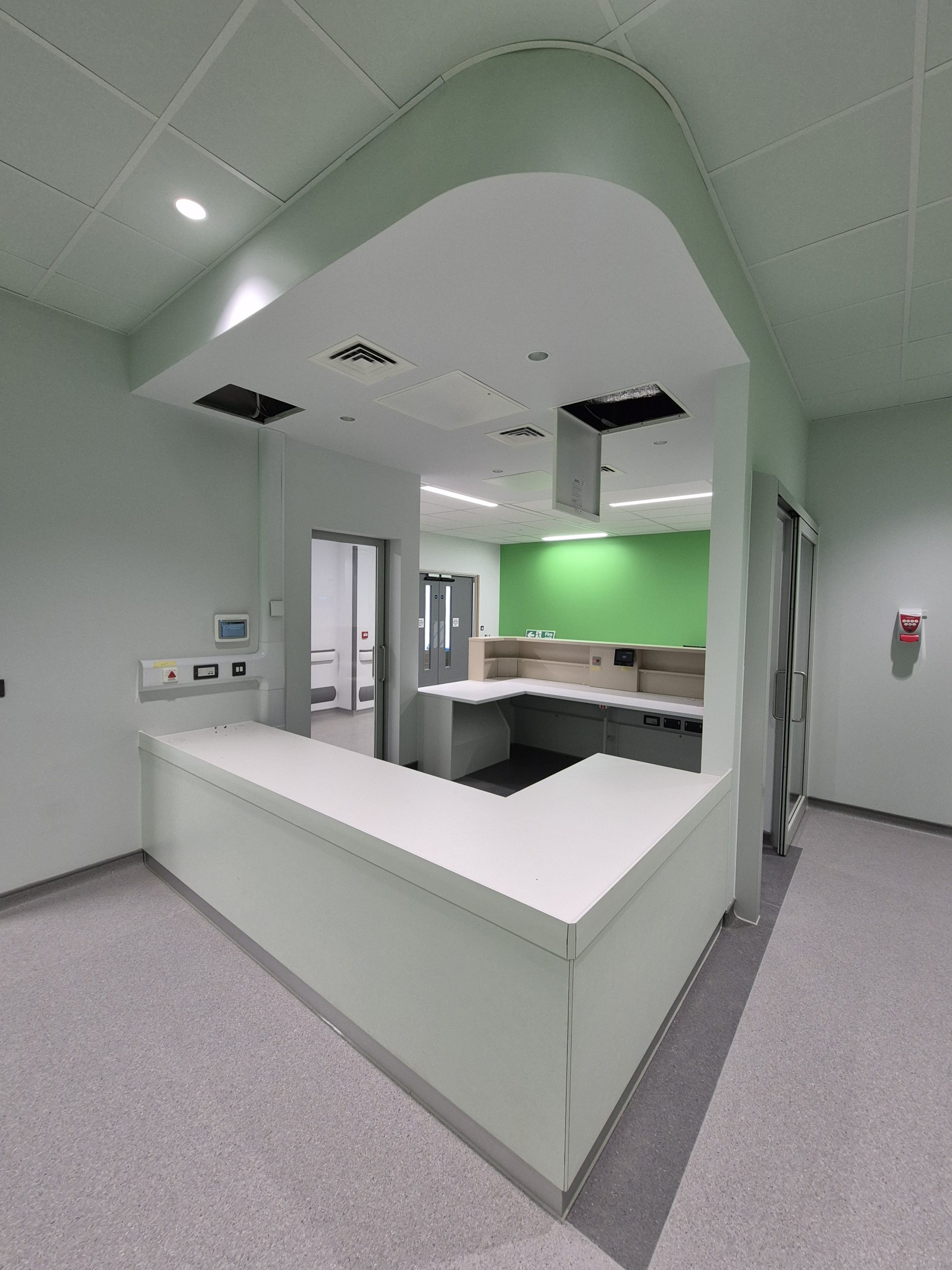Inside the main entrance of a busy NHS hospital is the reception desk. It stands…

Cheapest isn’t necessarily the best….or even the cheapest!
When operating a business, it’s important to be cost-conscious. Pressing suppliers on price is a part of the process. As suppliers, we get it, and we expect it. But we also caution our clients against a “cheapest is best” approach. When you’re going out to tender for a furniture contract, you definitely want price competitive, but you will ultimately get what you pay for. Cheapest isn’t necessarily the best, and it rarely even ends up being the cheapest.
Dirty tricks that get “cheap” suppliers in the door

Given the nature of the tender process, where most suppliers know there is a chance that public institutions will be looking for the cheapest submission, some suppliers have applied sneaky tricks to get their bids in the front of the line. While we’re certain that institutions have the intelligence to spot these practices, some do get through, and the long term costs can be a nightmare.
It’s wise always to consider that if something looks too good to be true, it probably is – then look at the fine print. One of the most common tricks to get a look-in is to quote a low starting price that will catch the suppliers attention. By the end of the contract, however, thanks to extra costs in the small print, with every little extra thing that crops up, the prices mount up and what was initially a great deal turns into a burdensome cost.
One typical example of unjust and unexpected costs is suppliers charging extra if there is a delay to the project’s construction phase, and they need to make multiple visits to install their furniture.
Get Procurement and your Quantity Surveyor involved up front

What can often happen is that procurement wants the project to be cheaper at the tender stage, deals are submitted that look attractive on the surface and are written in a way that doesn’t ring alarm bells. Then deals are brokered with this department before going off to the Quantity Surveyor (QS).
The problem with this process is that the QS is involved in the project and wants to know that the final price will be low overall. With their implementation and project management experience, they will know that things change and come up — all of which can affect the final price. They will have insights to support procurement to identify red flags before deals are struck.
Getting both departments involved from the beginning helps to weed out deals that look too good to be true. Procurement can find the best-looking deals, and QS can apply their implementation knowledge to flush out those who have weaved extra costs into the tender.
What you want to see in a supplier

Considering most hidden costs come from inflexibility, flexibility is one key quality you will want to watch out for amongst your suppliers. You need to identify suppliers that are accommodating and flexible. That can deliver the project on time and budget while also working with you in an agile way.
Agile manufacturing
Agile manufacturing is important. If unforeseen circumstances come up, your supplier needs to be able to deal with these things without hassle. For example, if ten extra cupboards need to be made quickly, you need to be sure that your supplier can handle these additions.
For a supplier to be agile, flexible and competitive, they will need to have:
- Their own manufacturing facility
- Their own installation team
- Their own delivery team
- Customer service handled from the top (you want direct access to the business leader)
- On-shore manufacturing of the products (to avoid customers tariffs or delays during events like the Covid pandemic).

The theme here is that cheap usually means bare bones. If you’re looking to deal with a supplier who brings subcontractors in to build up their capabilities, you’re going to pay for every extra head that needs to be brought in. Cheap starts that way because you’re paying for less, as in fewer people (in the beginning).
Conversely, if you’re dealing with a supplier who has their own team already on board, they are ready with these people to support your project as needed. They can be agile, swap team members in and out according to needs and be flexible with time as they have the ability to shift resources.
Cheapest isn’t necessarily the best – find out more
Established in 1982, David Bailey Furniture Systems is one of the UK’s leading specialist fitted furniture manufacturers. Our skilled and dedicated staff based in Broadstairs, Kent, are supported by an experienced team of fitters, strategically placed throughout the UK to ensure a seamless, high quality service from start to finish. Exceptional craftsmanship, flexibility and reliability mean that we secure a large proportion of hospital furniture, school furniture and veterinary furniture contracts via recommendation.
Our Healthcare range of fitted furniture features within some of the country’s largest and most prestigious NHS and private hospitals . It is also regularly specified for other healthcare furniture projects from health centres and nursing homes to doctors’ surgeries and dental practices.
Our Healthline HTM 63 and HTM 71 ranges meet the specific requirements of the Health Technical Memorandums, as outlined by the Department of Health.
Find out more about us here.
Are you specifying fitted healthcare furniture for a healthcare facility or hospital? See short videos of our furniture being made and read testimonials from other architects, contractors and healthcare customers about working with us.
You can see our range of hospital and healthcare furniture here.
Visit our Resource Centre, containing Revit BIM drawings, colour cards, proposal templates, sample clean room layout in BIM format and our brochure, all downloadable without the need to log in or register.
Or please get in touch with us to discuss a project.








